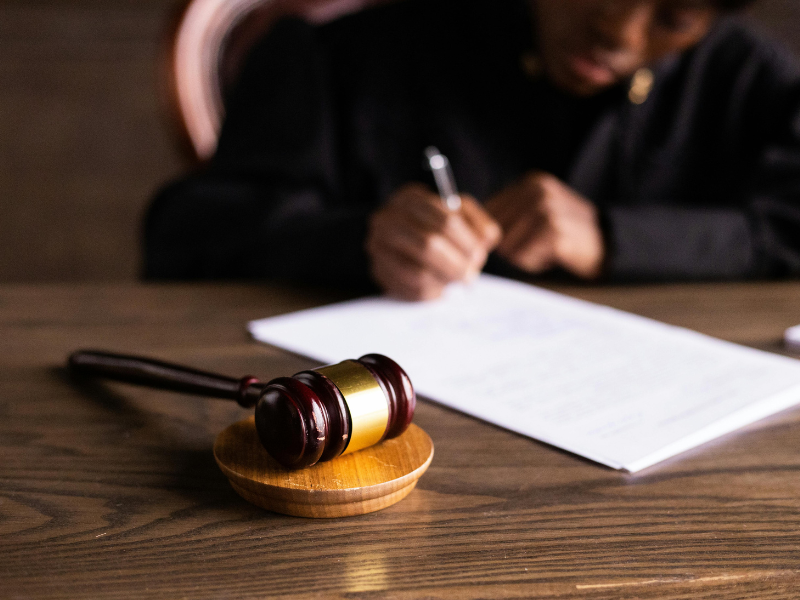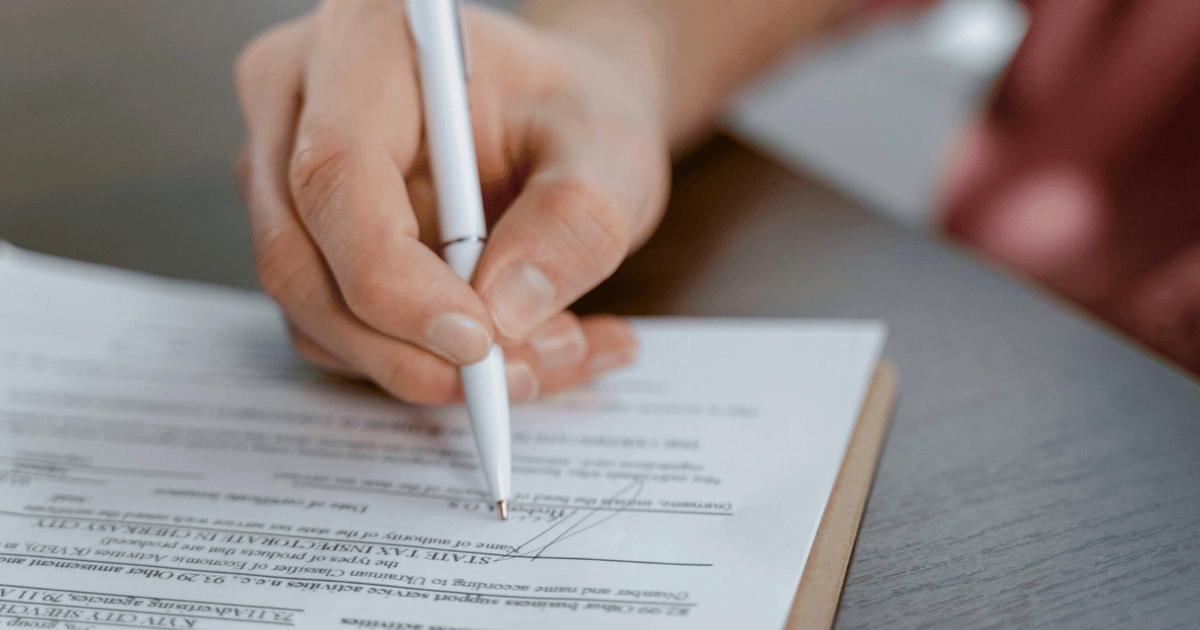Set Up a Will Now: Safeguard Your Future and Loved Ones
Legal Disclaimer: The information provided in this article about how to set up a will is for informational purposes only and should not be construed as legal advice. I am not a lawyer, and this communication does not create an attorney-client relationship. We are not a law firm, and therefore, any reliance on the information provided is at your own risk. A lawyer of your choosing is needed to read and explain the law from your point of view. Additionally, please be aware that by using the included links, we may be compensated at no extra cost to you. As an Amazon Associate, I earn from qualifying purchases. Always consult a qualified legal professional for specific legal guidance.
Hey there, future leaders! 🌟 If you’ve been thinking about how to set up a will, you’re not alone. While it might feel like a heavy topic, setting up a will is super important for financial security and peace of mind. Plus, it’s easier than you think! Let’s break it down together.
Why the Great Wealth Transfer Demands Action

The Great Wealth Transfer is happening as The Silent Generation and Boomers pass away. Unfortunately, many pass away without a will, leaving their assets in legal limbo.
Imagine Uncle Bob getting that mint-condition vintage Mustang instead of great-grandson Robbie. Grandfather intended Robbie to inherit the Mustang but didn’t set up a will, assuming his family would honor his wishes. They didn’t.
This serves as a wake-up call for younger generations to take charge and set up a will. Now is the time to step up and demystify estate planning by creating your own will. Taking this step is a vital part of How to Take Control of Your Finances.

Why You Need to Set Up a Will Now
You might be wondering, “Why do I need to set up a will at my age?” Here are a few reasons:
- Control Over Your Assets: A will, also called a “Last Will and Testament,” is a legal document that explains who gets your belongings—like your vintage vinyl collection or favorite sneakers—after you’re gone. Creating a will is a key step in How to Take Control of Your Finances.
- Protect Your Loved Ones: Clearly stating your wishes when you set up a will can prevent family disputes and ensure your loved ones are taken care of.
- Peace of Mind: Planning ahead with estate tools like a will gives you the confidence to focus on living your best life. Your “estate” simply means everything you own—like your money, belongings, and property. Think you’re too young to have an estate? Think again! Start with Practical Budgeting Tips and Tools for Gen Z to discover how much you already have to protect.
To better understand your money mindset as you plan your legacy, consider reading The Psychology of Money —a relatable, story-based book that’s perfect for reflecting on what truly matters.
Step 1: Understand the Basics to Set Up a Will
Before diving into the details, let’s cover the basics. Estate planning isn’t just for the wealthy—it’s for anyone who wants to secure their future.
A crucial part of this process is learning how to set up a will. It’s your way of saying, “This is what I want!” By learning how to set up a will, you take control of what happens to your assets and make things easier for your loved ones.
Step 2: Know the Legal Requirements to Set Up a Will
Every state has different laws for creating a valid will, so it’s important to do your research. Think of your will as a house—you need a strong framework to make it valid. Here are some general requirements:
General Requirements for a Valid Will
- Be at least 18 years old (exceptions exist in some states).
- Be of sound mind (you understand what you’re doing).
- Follow your state’s specific legal rules, which may include having witnesses.
Even with handwritten wills, taking steps to properly set up a will, like signing and dating it, ensures it holds up in court.

Handwritten Wills and Common Pitfalls
Did you know handwritten (holographic) wills can still work in some states? However, they come with risks:
- Dating and Page Numbers: Forget to date your will or number the pages (e.g., 1 of 6)? A judge may not accept it.
- Revoking Previous Wills: Forget to revoke an older will? That could lead to legal confusion, as in the case of singer Aretha Franklin.
- Misunderstanding the Law: Cousin Joe or Aunt Betty’s bad advice may not apply to your situation. Estate lawyers know the law—and how it’s practiced.
Unique State Laws and Examples
- Medicaid Repayment in Texas: New laws require Medicaid recipients to repay the state from their estate.
- Handwritten Wills in Texas: In Texas, the person who passes must handwrite and sign their will for it to be valid. Aunt Betty writing Grandma’s will, even with a notary, won’t cut it.
Don’t Forget About Power of Attorney
While setting up a will, consider creating a Durable Power of Attorney (DPOA) for financial matters. Here’s the difference:
- Power of Attorney (POA): Stops when a person becomes disabled.
- Durable Power of Attorney (DPOA): Continues even if the person becomes disabled.
You might also hear about a Living Will, which instructs others about medical decisions if you’re critically ill. These are important but different from a standard will.
Take Action
Creating a will doesn’t have to be overwhelming. Start simple:
- Use a holographic will (handwritten) as a temporary solution.
- Check out attorney-reviewed tools in Top Budgeting Tools for 2024.
- If your job offers free will services, take advantage of them!
💡Pro Tip: Watch The Last Days of Ptolemy Grey for an entertaining look at these topics—it’s both eye-opening and relevant.
Step 3: Decide What to Include When You Set Up a Will

When you set up a will, you decide what happens to your belongings and responsibilities. Here are the key things to consider:
Assets
This includes everything you own, such as:
- 💲 Money
- 🏠 Property (like your home or land)
- 👟 Personal items (from your favorite sneakers to heirlooms)
Feeling overwhelmed as you think about your assets? Writing in a gratitude journal can help you stay grounded while making legacy-focused decisions. It’s a small practice with a big emotional payoff.
Beneficiaries
Who do you want to inherit your things?
- Make a list of friends, family, or organizations (like charities).
- Be specific to avoid confusion or disputes later.
Guardianship
If you have pets—or kids—decide who will care for them. Don’t assume family members will automatically step up. Ask yourself:
- Do you want someone who loves and understands your kids and pets?
- Or someone who’s more interested in controlling insurance or trust benefits?
Planning now to set up a will can prevent misunderstandings later. The AppleTV limited series Ptolemy Grey shows how preplanning benefits families long after a will is created.
Step 4: Choose How to Set Up a Will

There are several ways to create your will. Choose the option that works best for your needs:
1. DIY (Do It Yourself)
If you’re comfortable with a hands-on approach, try:
- Online Templates or Guides: Many websites offer free or affordable will templates.
- Handwritten (Holographic) Wills: Some states, like Texas, allow handwritten wills. Be sure to follow your state’s specific rules.
- For example, the State Bar of Texas provides a guide: Handwritten Will Guide.
2. Apps
There are apps that make creating a will easy and straightforward. Check out recommendations in Top Budgeting Tools for 2024 for options that simplify the process.
3. Legal Help
For more complex needs, consult a lawyer who specializes in trusts and estates.
- Lawyers can ensure your will is valid and meets all legal requirements.
- They can also help with additional estate planning tools, like trusts or powers of attorney.
💡 Pro Tip: Even if you start with a DIY or app-based will, consider having it reviewed by a legal professional for added peace of mind.
Step 5: Keep Your Will Updated
Life changes, and so should your will! Regular updates are crucial to ensure your wishes stay relevant. Review and update your will after major life events, such as:
- 🎓 Graduation
- 💼 Starting a new job
- 💍 Marriage, divorce, or any other significant relationship change
Learn From the Past
Consider the case of singer James Brown. He didn’t update his will when his new partner had a son named after him. As a result, his will was stuck in the court system for years before a judge could make a decision. Regular updates can save your family time, money, and unnecessary stress.
💡 Pro Tip: Set a yearly reminder to review your will, especially after major life changes like marriage, a new job, or buying a home.
Questions to Consider When You Set Up a Will
- What are the essential components of a valid will?
- How can setting up a will benefit your loved ones after you’re gone?
Final Thoughts
Taking the time to set up a will might not feel urgent, but it’s one of the most impactful steps you can take for yourself and your loved ones. When you set up a will, you ensure your wishes are followed and your family avoids unnecessary stress.
With resources like Dave Ramsey’s Total Money Makeover, you can explore more ways to secure your financial future.
Another timeless read worth exploring is The Richest Man in Babylon —filled with short, story-driven lessons on building wealth and leaving a legacy that lasts.
So, what are you waiting for? Start your journey toward peace of mind and set up a will today! ✌️







